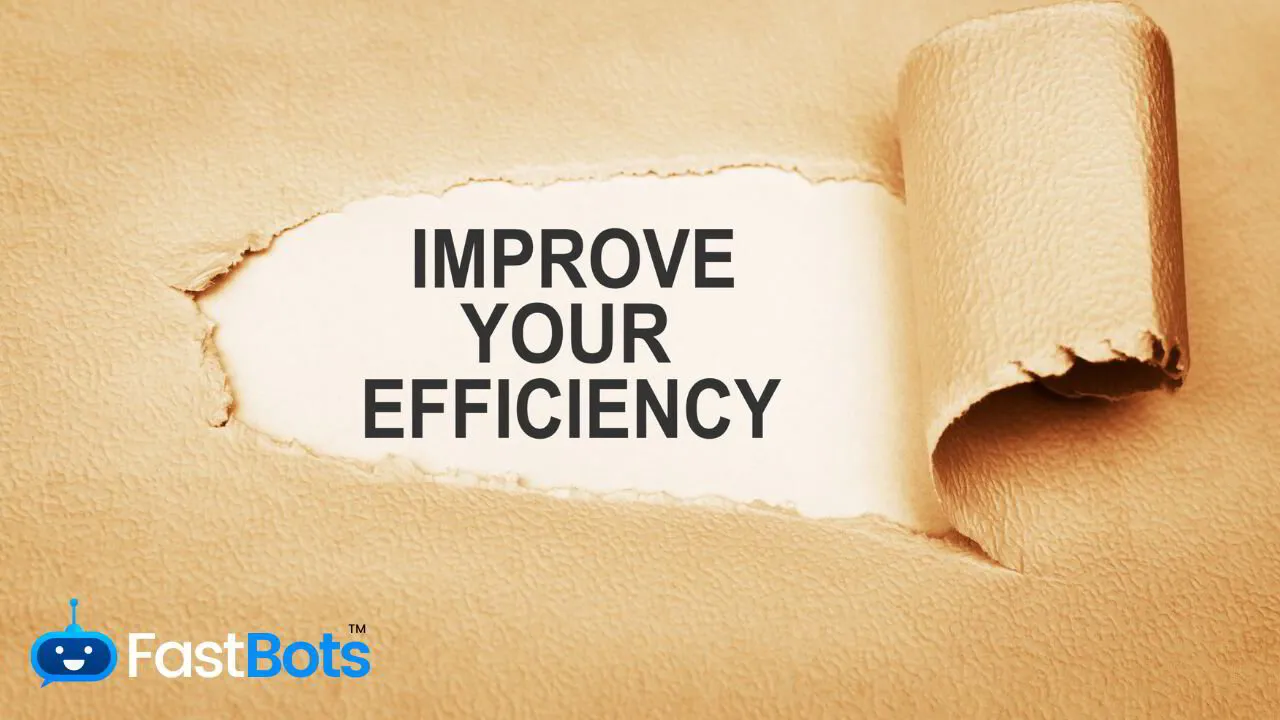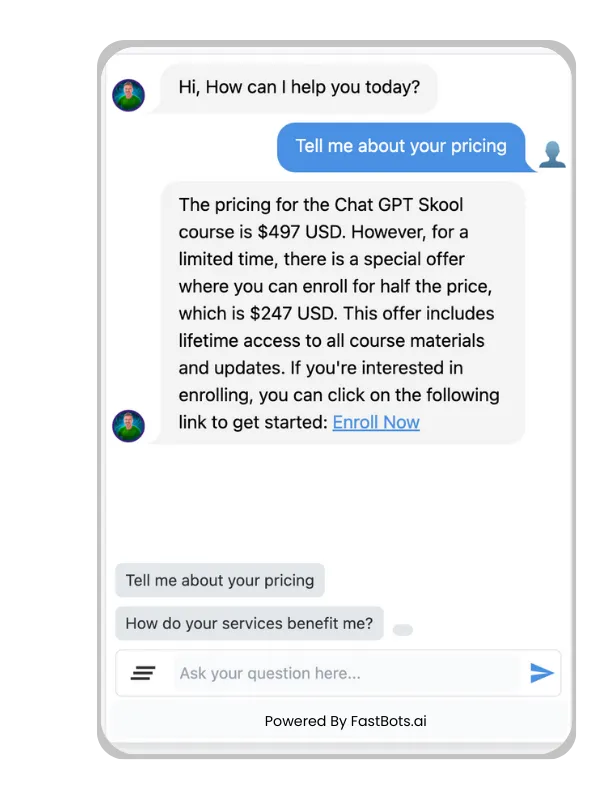In today's fast-paced business environment, efficient customer relationship management (CRM) systems have become essential for maintaining excellent client relations and staying ahead of the competition. One key aspect of streamlining your CRM is leveraging the communication channels most frequently used by your customers. With more than 2 billion users worldwide, WhatsApp has emerged as a dominant messaging platform, making it an ideal candidate for integration with CRM systems.
By integrating WhatsApp Web with your CRM, you can achieve a centralised and seamless communication experience between your team and your customers. This powerful combination enables businesses to respond to customer queries quickly, organise contact information, and enhance team collaborations. By bringing WhatsApp Web into the CRM ecosystem, the integration minimises the need for switching between different platforms, resulting in better productivity and customer service.
No matter which CRM system you use, such as HubSpot, Zoho, or Freshdesk, incorporating WhatsApp Web can transform the way your business communicates with its clients. As you continue to explore the benefits of this integration, you will discover methods to optimise your team's overall performance, ultimately leading to improved customer satisfaction and business success.
Overview of WhatsApp Web Integration in CRM
Benefits of Integration
Streamlined customer interactions: By integrating WhatsApp Web with your CRM, you can manage customer interactions efficiently using a single platform instead of constantly switching between CRM and WhatsApp Web. This saves valuable time and enhances communication efficiency.
Improved customer experience: Customers appreciate quick and direct communication through their preferred messaging platform, like WhatsApp. Integrating it with your CRM ensures you meet their expectations and provide a seamless experience for them.
Easy collaboration: With CRM and WhatsApp integration, your entire team can work together on customer queries and issues. Collaboration becomes easier, leading to faster resolutions and increased customer satisfaction.
Key Features
- Chat management: The integration allows you to manage chats within the CRM, so you can track and monitor conversations in real-time, organise them, and follow up as necessary.
- Customer record creation: You can automatically create customer records in your CRM based on information from WhatsApp interactions. This ensures that your customer database is up-to-date and accurate.
- Message templates: Use custom message templates to ensure consistency while communicating with customers. Save time by sending predefined responses to common customer inquiries directly from your CRM.
- Alerts and notifications: Set up automatic alerts and notifications in your CRM based on specific events or actions on WhatsApp. This ensures that your team stays updated and can respond promptly to important customer interactions.
Remember, integrating WhatsApp Web with your CRM elevates the overall efficiency of your business communication, making it an essential step for any organisation looking to excel in customer service.
BUILD YOUR OWN WHATSAPP AI CHATBOT
In less than 5 minutes, you could have an AI chatbot fully trained on your business data assisting your Website visitors.
Technical Setup for Integration
Prerequisites
Before diving into the technical setup for integrating WhatsApp Web with your CRM, you need to ensure that you have the following prerequisites:
1. A subscribed CRM platform: Choose a CRM platform that supports WhatsApp integration, such as Respond.io, Wati.io, or Fonada.
2. An active WhatsApp Business API account: WhatsApp Web integration requires an API account. Apply for WhatsApp Business API access here.
Installation Process
Once you have the prerequisites in place, follow the installation process below:
1. Authenticate your CRM. Sign in to your CRM account and navigate to the integrations or add-ons section. Look for the WhatsApp Web integration option and click "Install" or "Connect."
2. Provide API access. Input your WhatsApp Business API credentials, including the API key and phone number associated with the account.
Configuration and customisation
After you have successfully installed the integration, you can proceed with configuration and customisation.
1. Synchronise your contacts: Enable the sync option to automatically merge your WhatsApp contacts with the CRM contacts list. This prevents duplicate entries and ensures a streamlined contact management experience.
2. Set up funnels: Configure your CRM's funnel settings to categorise and organise WhatsApp conversations based on different stages in your sales or support process.
3. Customise notifications and alerts: Set up custom alerts and notifications for important events in your WhatsApp Web chat, such as unread messages or new contact requests. This ensures timely responses to customers.
Remember to periodically review and update your integration settings to ensure optimal performance and efficacy. Now that you have integrated your CRM with WhatsApp Web, enjoy the convenience and improved communication with your customers.
Streamlining Communication
Automating customer interactions
By integrating your CRM with WhatsApp Web, you can automate various customer interactions and boost your overall efficiency. To achieve this, set up a WhatsApp Business account by downloading the WhatsApp Business app and following the provided steps. This integration allows you to use CRM features directly within the messaging platform.
You will benefit from features like:
- Quick replies: Respond instantly to common questions by setting up predefined answers.
- Automated greetings: Set custom greetings to welcome customers when they initiate a conversation.
- Away messages: Let customers know when you're unavailable and what to expect until you return.
These automation features save time and help maintain a consistent customer experience.
Managing Conversations
CRM and WhatsApp Web integration significantly streamlines conversation management. Here's how:
1. Centralised interactions: All customer interactions are centralised in one place, making it easier to manage and track conversations.
2. Prioritisation: You can prioritise customer chats based on their importance and urgency, ensuring prompt responses.
3. Team collaboration: WhatsApp Web integrated with CRM, such as HubSpot, enables seamless collaboration among team members in addressing customer queries.
Feature Description CRM Example
Shared Inbox Multiple team members can access and manage customer conversations simultaneously. HubSpot Conversations
Notes Add internal notes to the conversation thread for better context and collaboration. Salesforce Chatter
Assignment A ssign specific conversations to the appropriate team member for timely resolution. Zoho CRM's Live Chat
Following these strategies, you can efficiently manage customer conversations and ensure a seamless experience throughout your communication channels.
Data Synchronisation and Management
Contact Synchronisation
One of the key benefits of integrating WhatsApp with your CRM is the seamless contact synchronization. This process allows you to automatically import and sync your WhatsApp contacts with your CRM. Consequently, it enables you to manage customer data in one central location.
There are several methods to achieve contact synchronization. For instance, some CRMs offer native integrations, while others require third-party solutions. Regardless of the approach, synchronising your WhatsApp contacts with your CRM system helps you:
- Maintain an up-to-date contact list.
- Reduce manual data entry errors.
- Avoid missing out on potential leads and customers.
The seamless contact synchronisation not only increases efficiency but also strengthens your overall customer relationship management strategies.
Lead Tracking
Another crucial aspect of using a CRM system with WhatsApp integration is the ability to track leads effectively. As soon as a customer initiates a conversation on WhatsApp, their information, such as name, phone number, and message, can be automatically logged into the CRM.
The following are some ways WhatsApp CRM integration can assist with lead tracking:
- Capture Real-Time Customer Information: As customers interact via WhatsApp messages, their data can be instantly updated in the CRM, providing real-time insights for better decision-making.
- Categorise Leads: Within your CRM system, leads can be categorised based on their respective engagement levels and interaction statuses. This could include labels such as "New Lead," "Qualified Lead," or "Nonresponsive Lead.".
- Monitor Lead Progress: You can track the progress of leads throughout the sales funnel, clearly visualising milestones and follow-up points.
Lead Stage Description
New Lead A new contact who has shown an interest in your product or service by initiating a conversation.
Qualified Lead A lead who meets your eligibility criteria and demonstrates purchase intent.
Nonresponsive Lead A contact who does not respond to your messages or fails to proceed further in the sales funnel.
By integrating WhatsApp with your CRM system, you can enhance lead tracking and management, ultimately improving your sales and customer support efforts.

Best Practices for CRM Integration
User training and adoption
To ensure successful CRM integration with WhatsApp, it's essential to provide proper user training and support. This includes:
1. Clear Documentation: Provide easy-to-understand guides and tutorials for users to follow. This helps them understand the features and benefits of the integration more easily.
2. Regular Workshops: Organise workshops and training sessions focused on key aspects of the integration, such as using templates, automated responses, and managing contact lists.
3. Dedicated Support: Establish a dedicated support team to address user questions and issues. It's critical for users to have a reliable source of help when they encounter difficulties.
4. Continuous Improvement: Gather user feedback regularly to identify areas for improvement and enhancements in the integration.
By following these best practices, you increase the likelihood of a smooth adoption process and more effective use of the CRM integration with WhatsApp.
Privacy and compliance
When integrating CRM with WhatsApp, it's crucial to comply with privacy regulations and maintain data security. Here are a few suggestions:
1. Data Encryption: Ensure that all data transmitted between the CRM system and WhatsApp is encrypted to keep sensitive customer data secure.
2. User Consent: Obtain explicit consent from customers before starting any conversation on WhatsApp. They should have the option to opt out, if desired.
3. Timely Deletion: Implement processes to delete customer data from the CRM system when it's no longer needed, in accordance with data retention policies and regulations.
4. Compliance with GDPR and CCPA: Familiarise yourself with the requirements of the General Data Protection Regulation (GDPR) and the California Consumer Privacy Act (CCPA) to ensure your WhatsApp CRM integration is compliant.
By following best practices for privacy and compliance, you not only protect your customers' data but also establish trust and credibility with them, resulting in long-term, fruitful relationships.
Frequently Asked Questions
What are the core benefits of integrating WhatsApp with a CRM system?
Which CRMs offer the best WhatsApp integration for businesses?
Is it possible to automate customer communication through WhatsApp in CRM?
What are the key features to look for in a WhatsApp CRM integration solution?
1. Ease of Integration: The CRM platform should allow a seamless integration process with little to no technical expertise required.
2. Centralised Dashboard: The CRM should provide a single interface to manage, track, and analyse all customer interactions on WhatsApp efficiently.
3. Automation: Look for CRM platforms that offer automation features such as chatbots, autoresponders, and customisable workflows for streamlined communication.
4. Analytics and Reporting: Ensure the CRM system can generate insights and reports on customer behaviour data for better decision-making.
5. Scalability: The solution should be able to grow with your business as the number of customers, support agents, and conversations increases.
How can small businesses leverage WhatsApp integration with CRM software?
Are there any open-source CRM platforms that support WhatsApp integration?
BUILD YOUR OWN WHATSAPP AI CHATBOT
In less than 5 minutes, you could have an AI chatbot fully trained on your business data assisting your Website visitors.


